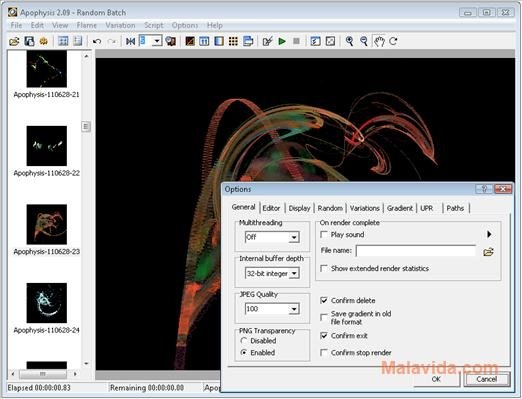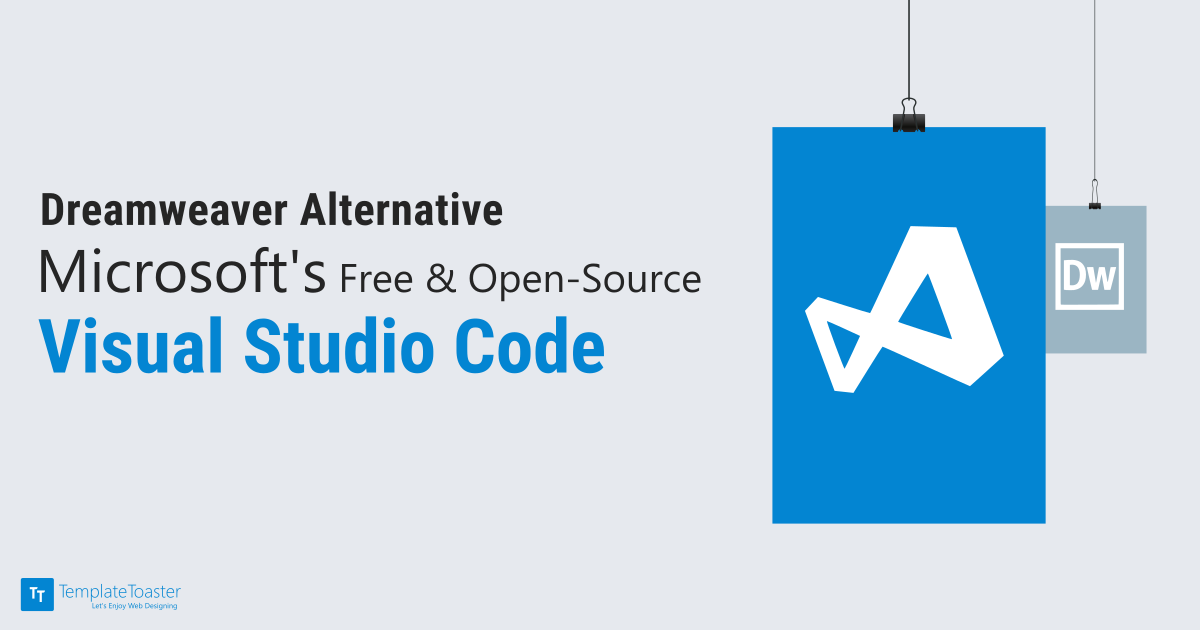What are the best open source applications available for Mac OS X? Are there any good open source alternatives to Microsoft Access for OS X? Should Microsoft make their Windows Phone OS as Open Source? Ask New Question. Quora User, pseudo-science fictionist. Best overall OpenXava alternatives according to reviewers. How products compare to OpenXava, based on review data. Name Rating Description; Knockout.js. Knockout is a standalone JavaScript implementation of the Model-View-ViewModel pattern. Request More Information.
- Open Source Openxava Alternatives For Mac Os
- Quicken Alternatives For Mac
- Open Source Openxava Alternatives For Mac Free
I have a heterogeneous IT environment, which means I use a mix of software that includes Linux as my primary operating system, Mac OS X on a Macbook Pro Retina, iOS on the iPad, two Chromebooks, Android on Nexus 6, 5, 7, and Samsung Galaxy S4. Windows is the only OS that doesn’t get to talk to my hardware or participate in my computing.
It runs in a secluded virtual machine just for the sake of keeping me abreast of what Microsoft is trying to do with it. This mixed environment forced me to pick apps that can be used on both Mac OS X and Linux so switching between the two platforms is as easy and seamless as possible. It also has saved me quite a lot of money, as I later discovered.
And since all of the apps are fully open source and community driven there is no risk of any malware, spyware, or adware, which you would find on typical proprietary ‘freeware’ apps. Being open source I can also be assured there won’t be any secret backdoors to spy on me. Ready to start saving some money? Let's get started. See also: Editor's Note: If you are unable to advance to the next slide, try disabling adblock. We apologize for the inconvenience.
Mac OS X comes pre-installed with QuickTime player, which can't play a majority of video formats. That's where VLC comes into play. VLC is a fully open source project developed by the community and is available free of cost. It's like a swiss army knife for movie playback. Once installed, VLC can play virtually any video format on the planet without any extra work. It can double as a music player as well as video converter.
You can easily convert videos from one format to another to play them on your iPad or iPhone, which can't play quite a lot of video formats. Another lesser-known feature of VLC is the ability to play online videos from the likes of YouTube. Safari isn't a terribly useful browser, as it's not available on other platforms. But Firefox and Chrome are up to the job.
The built-in syncing feature of Firefox keeps all of your browsing data synced with the server so regardless of which OS you are on all of your data - passwords, history, bookmarks - are accessible on all the devices. Google also has a similar feature but it takes the browsing experience to the next level with. These apps turn your browser into a “sort of computer” in itself: Word processing, text editing, basic image editing, chat, video chat, making phone calls, sharing files, etc. Can be done from within the Chrome browser.
Download and for Mac OSX. As a writer, information is my life line. I can't live or work without it. However I track so many developers, open source projects and open source companies that's it's virtually impossible to keep tabs on what they are doing. That's where RSS feeds come to the rescue. An RSS reader keeps an eye on any new posts by developers and I am notified immediately. On Linux there is no dearth of good RSS feed readers, but I struggled to find a decent one for Mac OS X that didn’t want me to shell out some dollars and had all the features that I needed.
Open Source Openxava Alternatives For Mac Os
My RSS feed needs are limited: all I want is support for folders and the ability to export/import OPML files so I can keep my RSS feeds synced across devices. Well if I am on Linux and add a new feed to my RSS reader there, the RSS client on Mac won’t get that feed. So what I do is keep the OPML file synced through my ownCloud server so whenever I add a new site all rss clients are automatically updated.
Vienna does all this - and it's open source and available free of cost. I must admit I am not a heavy word processor user. I do most of my work in 'text editors', without any bells and whistles. However there are occasions when you do need a word processor and that's where LibreOffice shines. One of the biggest arguments in favor of LibreOffice vs.
Microsoft Office or Apple Pages is that LibreOffice uses ODF as the default file format. ODF is an international standard approved by the ISO so it ensures that your data will never be locked to a vendor or lose changes when accessed from competing applications. LibreOffice comes with the complete suite of applications which include SpreadSheet as well as Presentation. Clementine was designed with music lovers in mind. Unlike iTunes where adding tracks and managing playlists is quite tiresome, Clementine is a pleasure to use. One of the features that I like the most is that I can keep all of my music (as well as movies and documents) on a central file server running Linux and accessible through Samba.
ITunes just doesn’t have the capability to deal with such a scenario. With Clementine I can browse the Samba server (or any other location such as an external drive) and add those music folders to the library. Clementine will scan all files and start playing directly from the server without having to copy that 500GB of data on to the 256GB SSD of my MacBook.
That’s not all, Clementine has many more features up its sleeve. If you want to do Karaoke, there is a tab called 'Song Info' on the side panel and it pulls the lyrics of the current track from the web (Last.fm)! Another tab called 'Artist Info' opens the Wikipedia page of the article within Clementine so you can read about the artist while you enjoy their work. Clementine has great support for podcasts, and it also supports tons of cloud services so you can connect Clementine to Dropbox or Google Drive and start playing music stored on these clouds. Do you still want to go back to iTunes?
I thought not. Let me tell you straight, Photoshop is the best image editing application around. No further discussion. But not everyone needs, or can afford, Photoshop.
In some cases it's overkill for an average image editing job. GIMP on the other hand fills the bill nicely. GIMP is an open source powerhouse that is available for free of cost for Linux, Windows and Mac OS X.
Its interface is similar to that of Photoshop so there is no steep learning curve. And, like Photoshop, you can expand the functionality of GIMP through plugins, scripts, and extensions.
The only sad part is that Photoshop and GIMP extensions are not compatible with each other so you can’t use them interchangeably. Give GIMP a try for your image editing needs.
If you are a photographer like me you would be shooting in RAW image format, which retains much more data than.jpg. But you need to process them before you can print or share them online. LightRoom is a great tool to process such files, but it's not available on Linux.
Your best alternative: Darktable. Having used both Lightroom and Darktable, I can vouch for Darktable as a dependable tool to process your images.
Not only is the interface of Darktable similar to that of LightRoom, it is quite feature rich. The one downside of Darktable is that there is no integration with GIMP. Once you have processed your images through Darktable and GIMP, how about adding some creativity to them? Check out works from Belgian artist Ben Heine for some inspiration. To create sketches or illustrations you need a professional grade vector graphic editor and there is no dearth of such tools.
Quicken Alternatives For Mac
I often use Inkscape for the job. Drawing sketches is not the only task this app can do: It’s also a great tool if you want to work on icon designs, logos, and diagrams. It’s an open source project, but installation on Mac OS X takes some extra work. If you plan to install Inkscape. Do you create podcasts or work on audio production? I often create video-casts, and audio editing is a core component of video production.
Apophysis is a fractal flame editor and renderer for Microsoft Windows. It allows the user to continuously zoom in or out of a fractal in a fluid, continuous. 'Oxidizer is a free open source fractal flame editor for the Apple Macintosh, running OSX 10.4 or greater.' Apr 22, 2009 - apophysis-j is a port in java of apophysis. The famous fractal flame editor for. Free Bouzereau Mac OS X 10.3/10.3.9/10.4 Intel/10.4 PPC/10.5.  Apophysis mac free download. Apophysis 7X A version of the fractal flame editor Apophysis which is ready to take advantage of modern versions.
Apophysis mac free download. Apophysis 7X A version of the fractal flame editor Apophysis which is ready to take advantage of modern versions.
Open Source Openxava Alternatives For Mac Free
Audacity is undoubtedly a leader when it comes to audio editing applications. It was the 11th most downloaded application on SourceForge in 2011 and was downloaded by more than 76 million users. The app interacts with your hardware so you can record podcasts directly to Audacity using the built-in mic or through external microphones. Check it out. There are tons of features for great audio production. I once recorded and edited an entire drama for community radio on Audacity. This app is out of my league because I don’t do 3D animation.

But if you are into animation, or want to learn it, there is no need to buy expensive 3D computer graphics software. Blender is the undisputed king of 3D animation. Blender is extremely powerful and can also double as a film-editing software. Blender can do so much that it seems like 20 apps packaged in one. The project page brags: It supports the entirety of the 3D pipeline—modeling, rigging, animation, simulation, rendering, compositing and motion tracking, even video editing and game creation. Do you want to see what Blender is capable of doing?
One of the biggest gripes I have with iOS is that it can play only a few (.mov, mkv and mp4, I think) video formats, whereas my Android devices can play virtually all video formats. What’s even worse is that iTunes won’t even let you copy any such ‘unsupported’ files to your iPad. The only solution is to convert the video to a supported format such as.mp4. While VLC (which I mentioned earlier) can convert videos, there is an open source app that specializes in video conversion and can convert files in batches.
It’s called Handbrake: a free-of-cost open source software that can convert videos from any format to mp4 and mkv. So next time if iTunes tries to put the brakes on your videos, you can pull out Handbrake.